Canadians continue to prioritize social policies to reduce poverty and food insecurity – results from our 2024 public opinion research
One of the goals of the Centre is to increase public awareness of and support for policies to reduce food insecurity in Canada. For the past four years, we have partnered with David Herle and the Gandalf Group to run an annual nationally representative survey[1] to gauge public awareness and opinion of food insecurity.
Our 2024 results show strong support for governments to prioritize social policies to reduce poverty and food insecurity. Some highlights of the research are found below. Full results available here.
If you would like to use these data, please cite “The Maple Leaf Centre for Food Security and the Gandalf Group. (May 24-June 8, 2024). Public perspectives on food security. www.feedopportunity.com”.
After steadily increasing, the proportion of Canadians who report they are worse off has started to decline.
In 2021, The Centre began asking whether Canadians felt they were financially better or worse off than two years previous and we had seen a steady increase in the proportion of Canadians who felt they were worse off financially. For the first time in 2024, we’ve begun to see a moderate decrease with less than half (44%) who felt they were worse off than two years ago. We have yet to see this number fall below the 41% who reported they were worse off in 2021 than they had been in 2019.
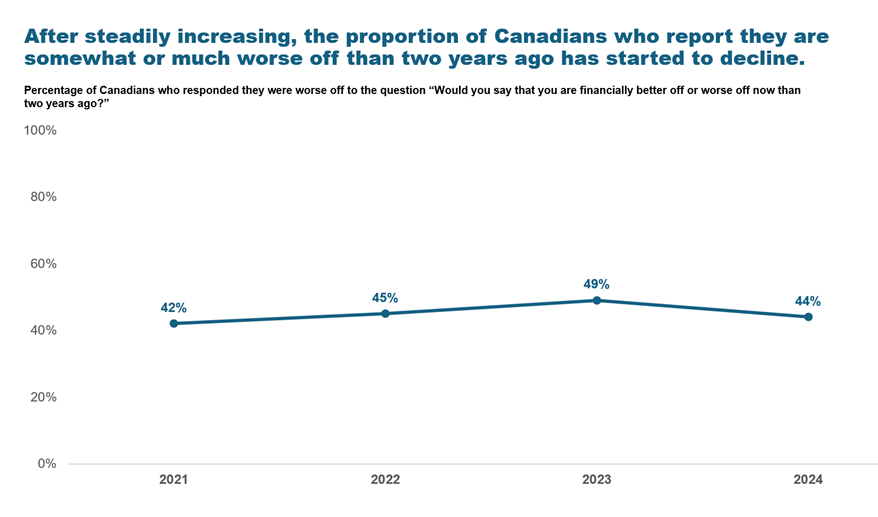
Although Canadians’ top concern is the rising prices of essentials, Canadians are also very concerned about the number of people living in poverty or in food insecure homes.
Almost all Canadians (93%) are concerned about the rising costs of essentials, with 59% reporting they are “very concerned”. Other areas where Canadians are very or somewhat concerned include the number of children living in poverty or in households experiencing food insecurity (87% of Canadians for each) and the percentage of people in Canada who are food insecure (86%). Notably, the proportion of Canadians very concerned about their own ability to afford food has more than doubled to 25% in 2024 from 12% when we began our polling in 2020. [2]
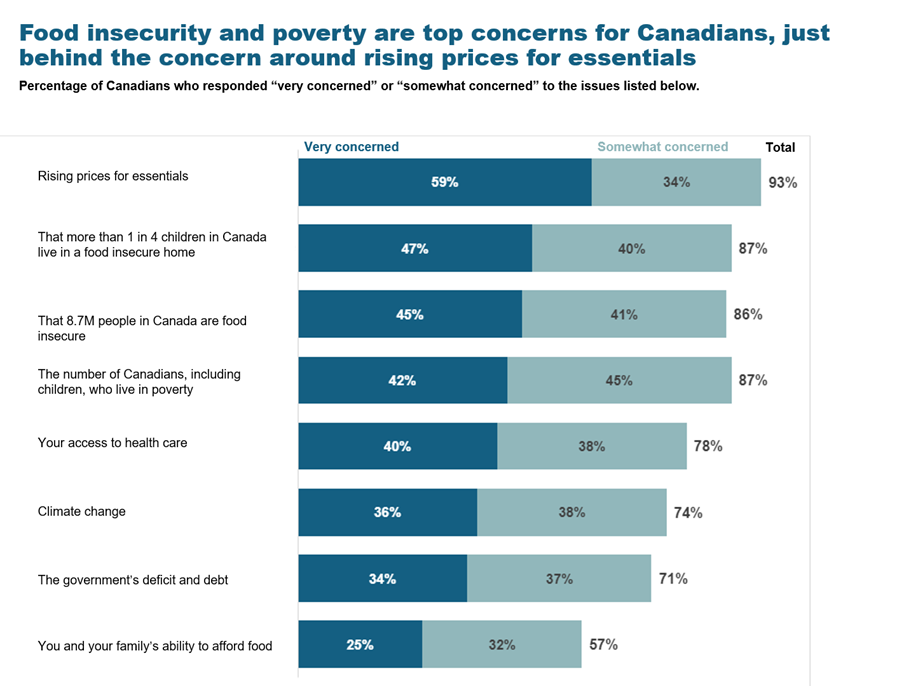
The term “food insecurity” is increasingly familiar.
Unsurprisingly, given the rising numbers of food bank users and increased media attention around food insecurity, we saw a significant growth in the proportion of Canadians who are familiar with the term “food insecurity” – 74% are very or somewhat familiar with the term, up from 65% last year.
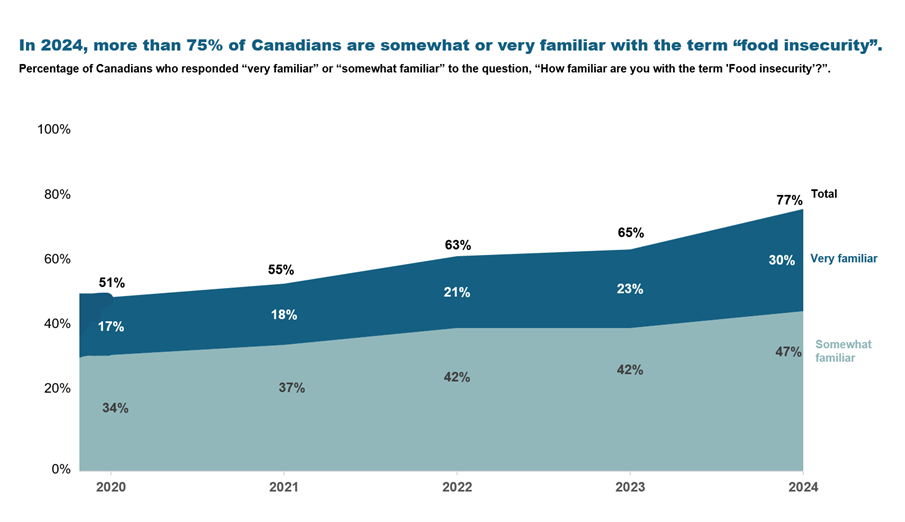
Most Canadians support government action on food insecurity, particularly for those with disabilities.
Although Canadians are concerned about inflation and housing affordability, there continues to be strong support for government policies to reduce poverty and food insecurity. Canadians supported policies which would make renting or buying a home more affordable (88%), raising income support for people with disabilities (83%), free prescription drugs (80%) and dental care (79%) for people living on low income and a minimum income floor for all Canadians (75%).
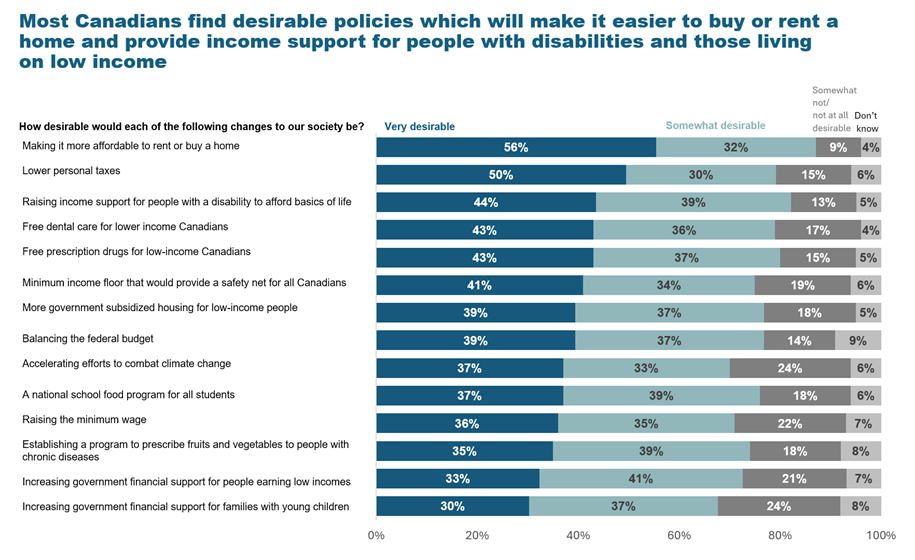
When asked to choose between policies, Canadians chose reducing poverty and food insecurity by a substantial margin over balancing the federal budget, subsidized housing, and reducing greenhouse gas emissions which worsen climate change. Although by a narrower margin, they also selected reducing poverty and food insecurity over lowering personal and sales taxes.
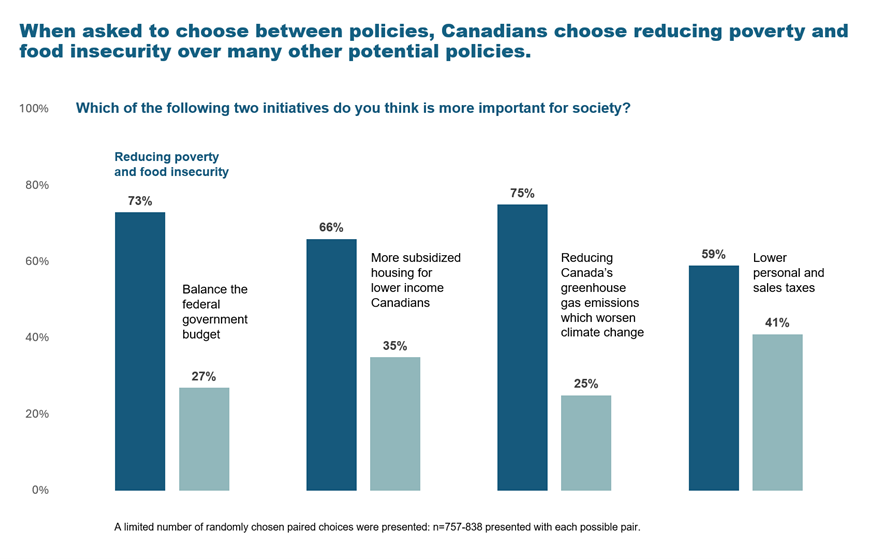
There is almost no opposition to increased support for people with disabilities. Eight in ten Canadians support government measures to boost incomes of people with disabilities, including more agreement (84%) for a government benefit that lifted people with disabilities out of poverty compared to the current proposed Canada Disability Benefit of $2400 per year (76% who strongly or somewhat support).
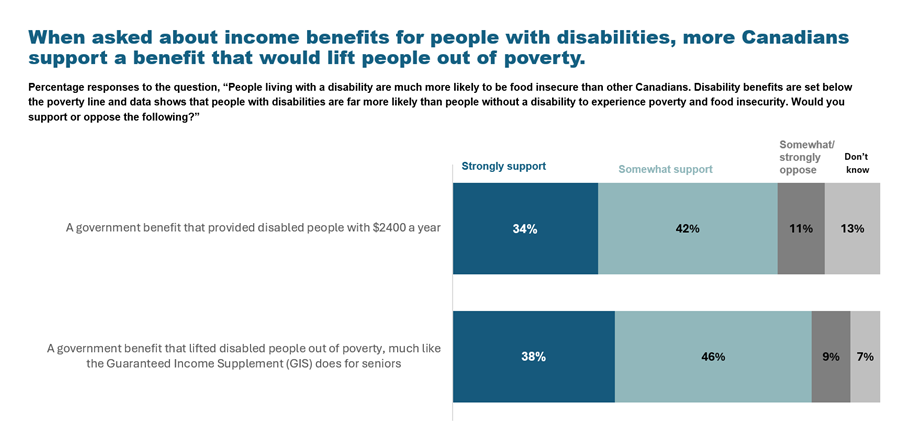
These results, and the results over the past four years, highlight the importance Canadians place on our social safety net, particularly to reduce poverty and food insecurity for children and people with disabilities. The Centre will continue to work with governments at all levels to design, improve and evaluate poverty reduction and food security policies and programs.
[1] From May 24 – June 8, 2024, we surveyed 2,562 people in Canada, with quotas and weights to reflect the gender, age, and regional distribution of adults in Canada (the margin of error for a probability-based sample would be +/- 2.2%, 19 times out of 20).
[2] This number rose to highest levels in 2023 with 29% citing they were “very concerned”.
September 30, 2024